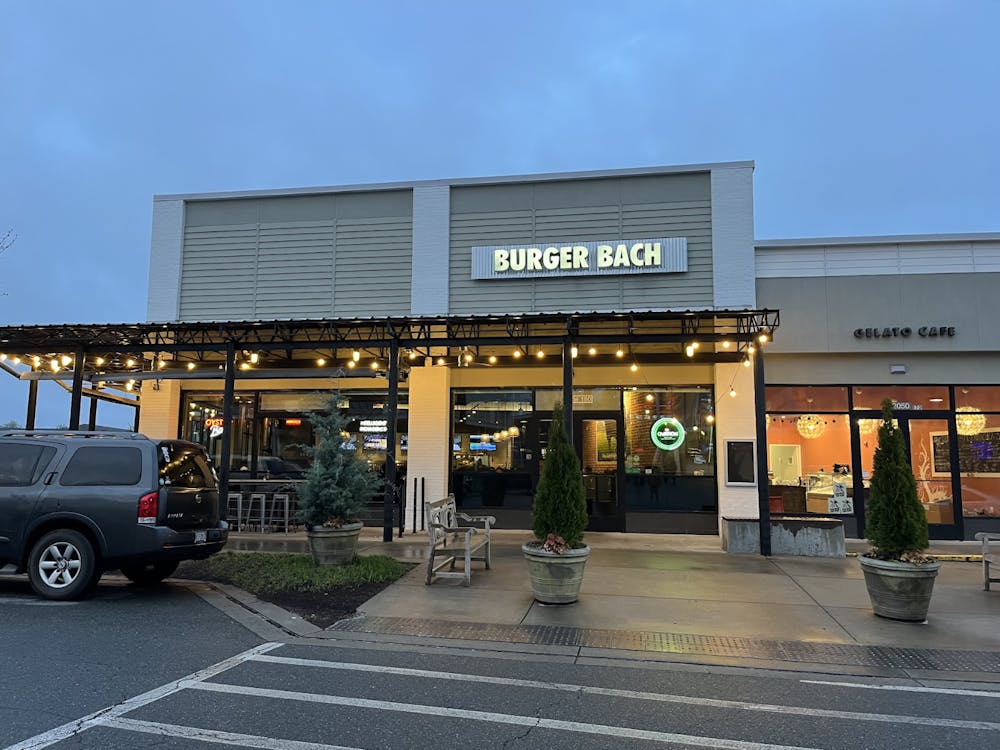Forgiveness is going extinct.
Last week, I said “That’s okay!” a few dozen times — to a girl who apologized for bumping into me walking down the street while running late to class, to a friend who forgot we had plans to grab coffee and in response to a rash comment from someone who didn’t mean to hurt my feelings, to name a few. But I didn’t forgive anyone.
There’s a difference between saying “it’s okay” — which has become increasingly normal — and saying “I forgive you.” The difference isn’t in the formality of the statement — it’s not that “it’s okay” is more casual and “I forgive you” is fancy. It’s not a product of language progression, either — “it’s okay” isn’t new, and “I forgive you” isn’t old. So why do we say the former a hundred times a month, when we can’t remember the last time we said the latter looking into someone’s eyes?
Have you heard the phrase “forgive and forget?” Of course you have — you love that phrase! I certainly do, because it makes things so easy, so plain and so simple. There’s only one problem: it’s not forgiveness. While society pairs these two together and ties a ribbon on top, they don’t actually mesh well. All along, while we’ve been believing we’re doing both, I want to argue we’ve actually been choosing — we’ve been forgiving or forgetting.
And — if we’re being honest — most of us have been forgetting.
When we forgive, we acknowledge that something was wrong, that something was broken, that something has been hurt and we acknowledge that it had a cost — one we’re absolving. When we aim to forget, we try to act like nothing happened and just move on. Instead of forgiving the hurt, we pretend like we were never hurt in the first place.
Whether we’re saying “it’s okay!” enthusiastically with a reassuring smile on our face, or typing “it’s fine.” in a passive aggressive text message, we’re saying, “It’s fine because nothing was wrong in the first place.” We’re saying, “It’s totally okay because that didn’t hurt,” and “It’s absolutely fine because nothing happened.” It’s okay because we’ve forgotten the wrong — or we’re pretending to.
This is a diluted and degraded form of forgiveness.
First off, it pretends like wrong things aren’t wrong — and they are. Inherently, by themselves, they’re not okay. You may absolutely be able to forgive them easily, especially if it’s something as simple as plans falling through, but when we profess over and over again that it’s all “okay” — no matter what it is — we slowly but surely change the standards of right and wrong. We have to admit that wrong things are wrong and that hurtful things hurt.
This is hard because to acknowledge something was wrong and hurtful, we have to confess we were wronged and hurt. I think that makes us feel fragile and sensitive in a world that raised us to be tough and to let things slide off our shoulders. We don’t admit to ourselves when we’ve been hurt, and we do just about anything we can to avoid admitting it to anyone else.
No wonder we settle for saying, over and over again trying to convince other people and, mainly, ourselves, that “it’s okay!”
And even still, the real problem with forgetting is that we don’t forget. We build lists of grievances against one another, our relationships dissolve into conflict and no one knows why and we grow bitter. We move on outwardly but clutch records of wrongs inside our hearts.
If you want to see these issues and their repercussions through a magnifying glass, turn your eyes to any relationship and watch these small instances become grenades in the hands of two people dating one another. Pretending doesn’t work so well.
When I started dating Andrew, I overused the reassurance of “it’s okay!” like it was the only phrase in my vocabulary — and I’m an English major. As a natural people pleaser who could make a career out of avoiding conflict, that was just my mantra and it always had been. I was an expert at minimizing issues because I didn’t want to admit that anything was ever wrong or that anything ever hurt me. Thankfully, he didn’t let me settle for pretending — he gently pushed me toward practicing forgiveness.
I still remember the first time I quickly declared, “It’s okay!” in the midst of a hard conversation, trying to hurry over a hurt, only to hear him suggest that, “It doesn’t have to be okay.” I was shocked that he didn’t want to take my get-out-of-jail-free card and move on. What he knew, and what I was learning, is that it wouldn’t really be moving on at all. I wanted to sweep it under the rug, and Andrew knew that wasn’t going to work. I’m so thankful that’s not what happened. Could we do this for each other? Could we remind our friends that everything doesn’t have to be okay? That it shouldn’t be okay?
Sometimes I still revert back to saying “It’s okay!” and I’m often met with the rebuttal “No, it’s not okay,” to which I respond, “You’re right; I forgive you.”
To sa y “I forgive you” is to say that the act needed forgiving — that it was wrong. To say “I forgive you” is to say that in the midst of the situation, you were hurt, because you’re human. To say “I forgive you” is to offer to move toward someone, closing a gap made and allowing a relationship to be restored. To say “I forgive you” is to forgive. Forgetting doesn’t do that, won’t do that and can’t do that.
The restoration to peace we long for in little and big ways — that’s only found in real forgiveness.





